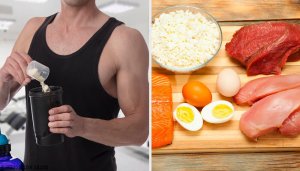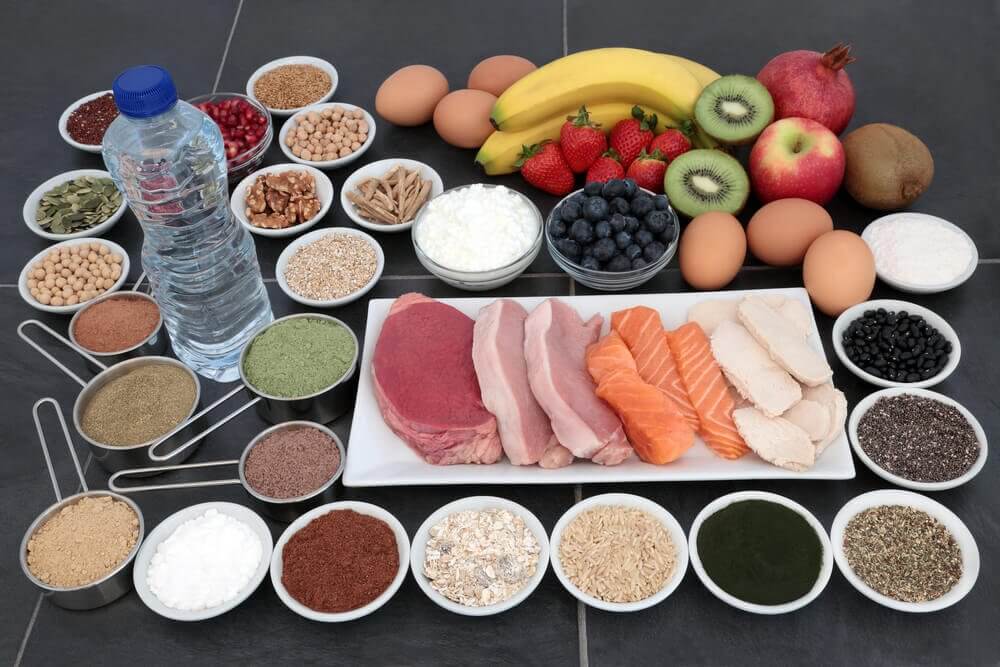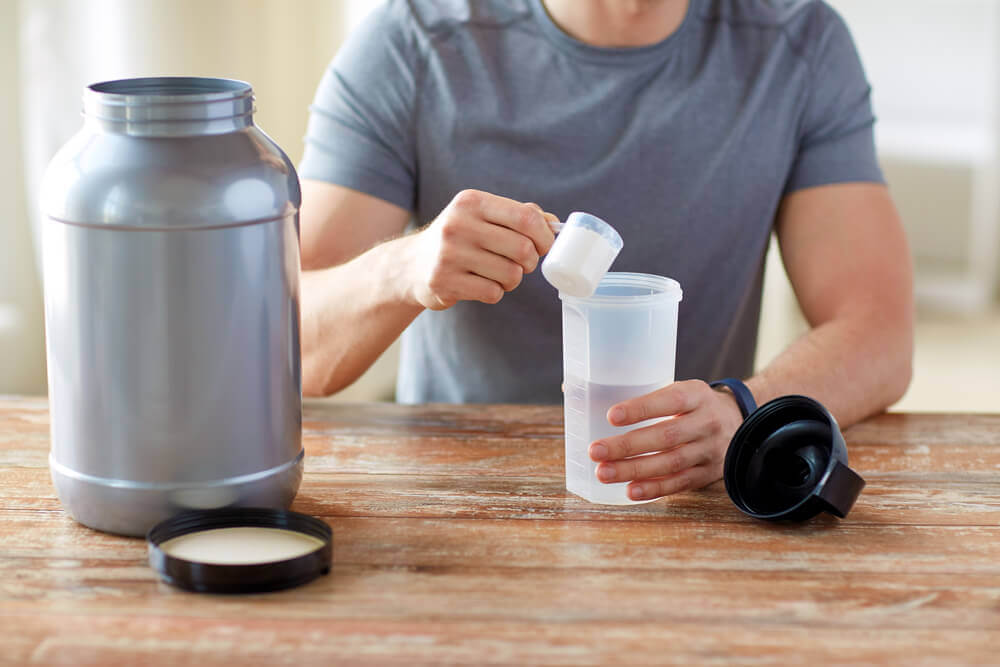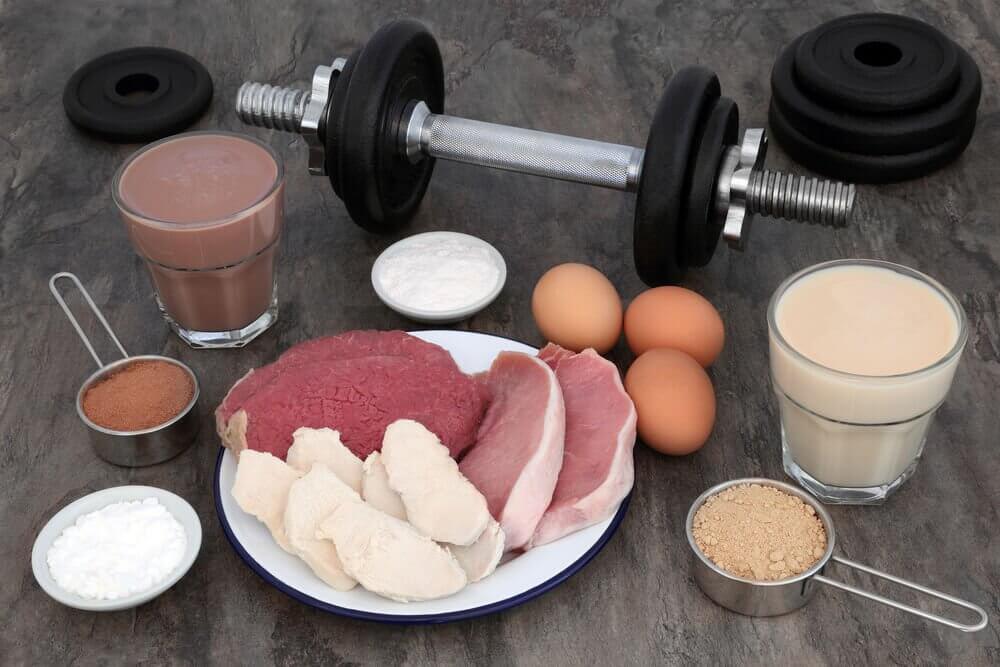All About Creatine its Amazing Health Benefits


Reviewed and approved by the doctor José Gerardo Rosciano Paganelli
Creatine is an organic acid that helps us strengthen and develop muscles. It is obtained from animal feed or, if we do not eat meat, from supplements
We must really know what purpose this amino acid has in our body so we can decide if we should take it for a while.
Discover in this article what creatine is, what its properties are and how we should take it in order to get the most out of it.
What is creatine?
Creatine is an organic acid produced by our liver from three amino acids: arginine, glycine and methionine.
Creatine is stored in the muscle fibers until it is released as energy by physical effort, especially if it is brief but intense.
Although the body already produces creatine, if we take it as a supplement we can enhance its positive effects on our muscles.
Visit this article:
Maintain Your Weight and Take Care of Your Muscles and Body with Watermelon
Health benefits
Creatine has the following benefits for our health:
- It increases muscle endurance
- We feel greater strength
- It increases muscle mass
It is, therefore, a supplement that can be very beneficial for athletes who want to gain muscle mass and volume and also for those who want to improve their body shape, that is, define the muscles and reduce unruly fat.
Are there foods rich in creatine?

It should be noted that you cannot get creatine in foods of plant origin, so that vegetarians should also consider consuming it as a sporadic supplement.
The foods richest in creatine are the following, in order of highest to lowest quantity:
- Herring
- Veal
- Salmon
- Tuna
- Rabbit
- Chicken
- Cod
However, it should be noted that to obtain 5 grams of creatine (recommended daily amount) we would need to consume more than one kilo of herring.
In addition, a large part of this nutrient is lost during cooking. For this reason we recommend taking a supplement if we want to increase the consumption of creatine.
See also:
The Benefits of Eating Salmon and a Great Recipe
Creatine supplement

- The general recommendation is 5 g of creatine per day divided into several doses. However, a more precise pattern would be 1 gram per 10 kg of weight. That is, a person of 60 kg would take 6 g daily.
- After a month of supplementation, we can rest two weeks and repeat.
- We can take creatine with water or mixed into our shakes. If we are going to exercise that day, we should take it before or after to enhance its positive effects.
- By taking creatine, we increase hydration at the intracellular level, so we must also be conscious of drinking more water, especially outside of meals and while we doing physical activities. We will have to consume a liter and a half of water every day, at least, and on hot days or if we sweat, even 2 liters.
- It is important to clarify that creatine retains fluid only at the intracellular level and that it has no negative effect on the function of the kidneys.
Other tips to increase muscle

It is possible that we have decided to increase or define our muscles or improve the shape of our body, or we have started an exercise routine and we want an extra contribution of energy.
We can also follow these simple and effective tips that will complement the function of the supplement:
- Reduce the consumption of harmful fats: pastries, precooked, fried foods, margarine, ice cream, sweets, low quality oils, snacks, etc.
- Increase healthy fat intake: extra virgin olive and coconut oil, nuts, seeds, avocado, clarified butter or ghee, egg yolk, blue fish, etc.
- Consume protein in each meal, combining protein from animals (meat, fish, eggs, dairy) and vegetables (legumes, nuts and seeds, whole grains such as quinoa or millet).
- Eat a portion of protein after physical exercise before 40 minutes have passed. At that time, we should also take the corresponding dose of creatine.
- Perform toning exercises with weights or elements that help us to strengthen the muscle (ribbons, weight balls or our own body weight). Initially, we can start with two or three sessions per week, alternating different muscles every day.After three months, we can reduce the sessions to one or two per week, as a maintenance, depending on the results we obtain.
- We highly recommend the vegan protein shakes that are sold today in powder, made with foods like pea, hemp, brown rice or whey. We can combine them with fruits and vegetable drinks.
All cited sources were thoroughly reviewed by our team to ensure their quality, reliability, currency, and validity. The bibliography of this article was considered reliable and of academic or scientific accuracy.
- Antonio, J., Candow, D. G., Forbes, S. C., Gualano, B., Jagim, A. R., Kreider, R. B., … & Ziegenfuss, T. N. (2021). Common questions and misconceptions about creatine supplementation: what does the scientific evidence really show?. Journal of the International Society of Sports Nutrition, 18, 1-17. https://link.springer.com/article/10.1186/s12970-021-00412-w
- Brosnan, M. E., & Brosnan, J. T. (2016). The role of dietary creatine. Amino Acids, 48, 1785-1791. https://link.springer.com/article/10.1007/s00726-016-2188-1
- Curt, M. J. C., Voicu, P. M., Fontaine, M., Dessein, A. F., Porchet, N., Mention-Mulliez, K., … & Vamecq, J. (2015). Creatine biosynthesis and transport in health and disease. Biochimie, 119, 146-165. https://www.sciencedirect.com/science/article/abs/pii/S0300908415003429
- Forbes, S. C., Candow, D. G., Neto, J. H. F., Kennedy, M. D., Forbes, J. L., Machado, M., … & Antonio, J. (2023). Creatine supplementation and endurance performance: surges and sprints to win the race. Journal of the International Society of Sports Nutrition, 20(1), 2204071. https://pubmed.ncbi.nlm.nih.gov/37096381/
- Hall, M., Manetta, E., & Tupper, K. (2021). Creatine supplementation: an update. Current Sports Medicine Reports, 20(7), 338-344. https://pubmed.ncbi.nlm.nih.gov/34234088/
- Jurado, J. M., Navarrete, P. A., Ranchal, S. A., & Ordóñez, F. M. (2020). Timing óptimo en la suplementación con creatina para la mejora del rendimiento deportivo. Arch. Med. Deporte, 38, 48-53. https://dialnet.unirioja.es/servlet/articulo?codigo=7890543
- Kreider, R. B., & Stout, J. R. (2021). Creatine in health and disease. Nutrients, 13(2), 447. https://www.mdpi.com/2072-6643/13/2/447
- Moriones, V. S., & Santos, J. I. (2017). Ayudas ergogénicas en el deporte. Nutrición Hospitalaria, 34(1), 204-215. https://www.redalyc.org/pdf/3092/309249952030.pdf
- Roschel, H., Gualano, B., Ostojic, S. M., & Rawson, E. S. (2021). Creatine supplementation and brain health. Nutrients, 13(2), 586. https://pubmed.ncbi.nlm.nih.gov/33578876/
This text is provided for informational purposes only and does not replace consultation with a professional. If in doubt, consult your specialist.








